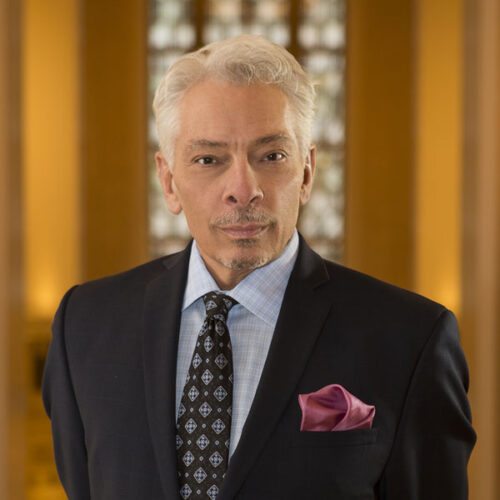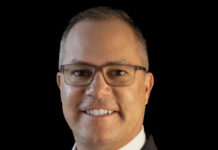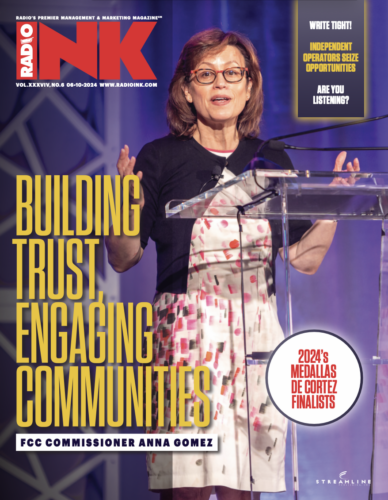
(By Mike McVay) The 7 Habits of Highly Effective People, a book first published in 1989, is a business and self-help book written by Stephen R. Covey. That book spawned many articles and variations of the theme sharing the traits and behaviors of those that are most successful.
Rereading the book on a recent transcontinental flight ignited a spark plug in my brain to revisit the concept and apply it to the role of Program Director – one that’s changed greatly since Covey authored the book.
Being aware of and understanding these seven habits is important, especially when hiring a PD. It is easy for a sales-oriented Market Manager to approach any PD candidate as if they’re hiring a Sales Manager. The mindset of the PD is similar in that like a GSM constantly looks for potential clients, the best PDs are always looking for potential listeners.
You want your PD to collaborate with sales, but you don’t want them to be of the same mindset as your Director of Sales. The PD’s job is to build and maintain an audience. That’s the bottom line. You want the PD to be collaborative with sales, supportive and non-combative, but their job is to make the station sound fabulous and attract the largest audience possible.
- The very best Program Directors know who their audience is, what their audience is looking for from a radio station, and how to give it to them. They can “hear” the radio station in their head. They have a sound in mind. They know how to lead and encourage their air talent to match that sound, how to have their imaging enhance that sound, and how to create a consistent sound across their radio station… without creating a sameness of sound that is best described as boring.
- They know how to hire air talent who have special skills, are highly entertaining, creative, and committed to working at delivering special content every time they turn on the microphone. Most importantly they know how to allow those same talent to do what they do best. That is to entertain, inform, and provide companionship.
- The very best PDs understand that they work for the talent. Their job is to help an air talent perform at a high level, by providing them with the tools and guidance they need or want, and it is to positively coach and motivate them. I learned more from many of the amazing talent that I have worked with than I ever did from any manager that I worked for as a PD.
- They know how to collaborate with both the sales and promotion departments to generate revenue for the advertiser by motivating an audience to take action.
- The very best PDs are driven to succeed, tireless, creative, focused, organized, and motivational, know how to manage up – down – sideways, understand ratings methodology, and how to maximize the ratings system to get credit for the audiences’ use of their station. They understand research and how to implement the results of the study.
- They understand marketing, promotions, how to design a format clock where each quarter hour is strong enough to live on its own, how to select and “play the hits” whether “the hits” are a song or a hot topic on a spoken-word station. They know how to break format when breaking format is the absolute right thing to do.
- The very best PDs take responsibility for everything that comes out of the speakers. No excuses.
Mike McVay is President of McVay Media and can be reached at [email protected]. Read Mike’s Radio Ink archives here.







Number 1 has 7 habits. Sounds like a $500,000 minimum job. Number 9 is “properly compensated for these remarkable skills.”
Mike, I would add to #7 that the PD takes responsibility for what comes out of the speakers, on ALL audio platforms. I can’t tell you how many streams I listen to that contain outdated spots and promos, elements that step on one another, and other signs that no one pays attention. “Speakers” now reproduce a brand’s audio content from more than just the on-air signal.
CCC actually you’ve created a syllogism. A genius that was standing in front of everyone in plain sight.
I always appreciate your perspective Dave. Thank you for reading my words and reacting. Truly.
#5 all day long. Great piece, Mike!
Thank YOU, Fred!!!
These were true before consolidation, Mike. Is it the same in the era of RVP’s, RVPP’s, Brand Managers, National VPPs, top-heavy corporate “experts”? Yes, once the manager’s wife was the “assistant program director”. In all seriousness the lines have been blurred as to what a PD/Brand Manager is supposed to do in the media landscape of 2024. In a perfect world, a PD will be tested and fairly evaluated in all of these traits when hired-and be allowed to collaborate with others in the company to hone these skills, and the other department heads will entrust and empower the PD to do the best job possible. Part of the plan should be to agree on and develop ways to measure success. In many cases, sadly, it’s not a perfect world. Mike- kudos to you for keeping up the fight.
You’re right. McVay’s piece is certainly well articulated and well intentioned, but it reads like something from the 1980’s lol.
The corporate stations- iHeart, Beasley, Audacy- are all macro managed by corporate, including programming. The Market Managers, PD’s (where they even exist anymore) and other market managers are eunichs, with no power and they just follow the mandates from corporate.
And corporate management at the likes of iHeart is doing such a great job…
Roy Radio … I appreciate that you at least wrote that my words are “certainly well articulated and well intentioned.” It pains me that you feel as you do. Sadly, I cannot say definitively that you are wrong, but rather that in many cases you may be right. Not in every case. That doesn’t mean that things don’t change. Things do change … when we continually push for change. Don’t give up. Radio remains a very good business.